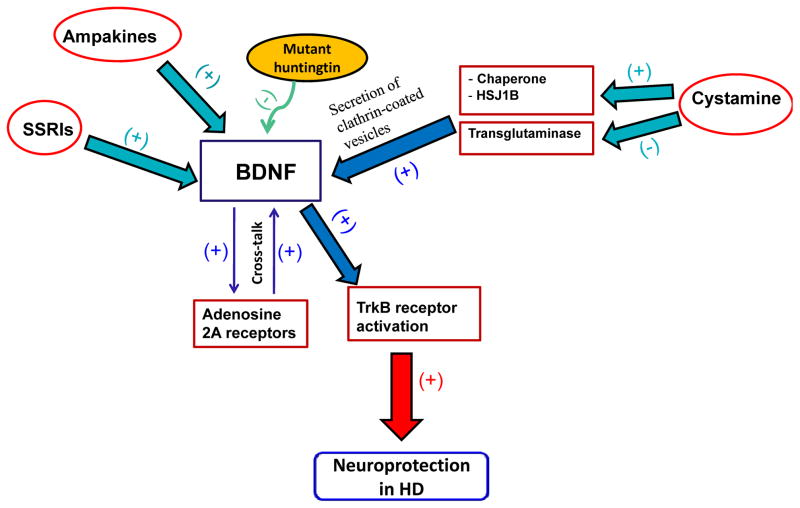Fig. 2.
Molecular and pharmacological mechanism of actions of BDNF in the prevention against the effects of mutant huntingtin protein. First, adenosine 2A receptors play a role in the mechanism of action involving the transactivation of BDNF receptor TrkB. Second, cystamine has a neuroprotective effect that is mediated through the upregulation of chaperone, HSJ1B, and the inhibition of transglutaminase. These proteins are key players in the secretion of clathrin-coated vesicles containing BDNF. Third, ampakines and SSRIs are also suggested to increase the expression or activity of BDNF. Together, these compounds may induce BDNF expression, which leads to neuroprotection. (+) Stimulatory effect; (−) Inhibitory effect.

